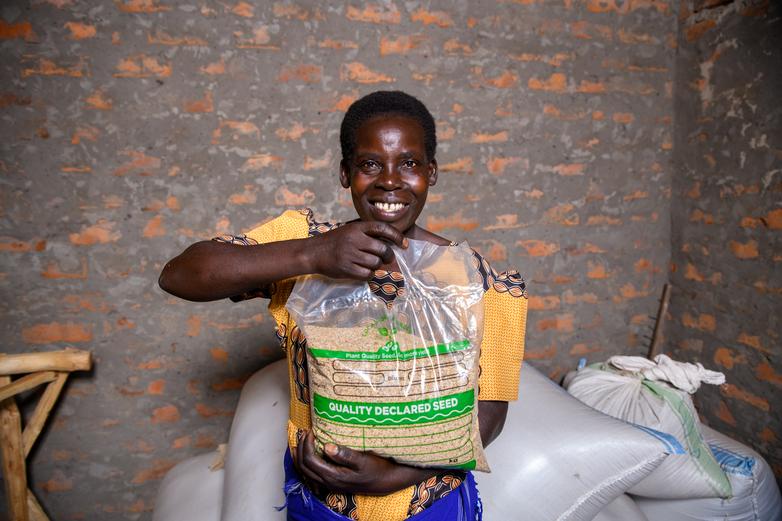Context
In northern Uganda, 90 per cent of the population engages in agriculture. Production and efficiency are low by regional standards. This is due to low yields, inadequate use of yield-enhancing measures, insufficiently business-oriented and connected enterprises, and vulnerability to climate change and extreme weather events.
Small farmers in the region lack the knowledge to apply climate-friendly practices or to use resources such as soils in a future-proof manner. At the same time, agri-based micro, small and medium-sized enterprises (MSMEs) lack technical knowledge and access to advice and other business development services. As a result, there is little investment by either group in local agricultural supply chains.
Greater resilience and competitiveness of the small farmers and MSMEs would increase their local and regional profits, creating jobs and raising incomes.
Objective
Transforming agricultural and food systems in the Northern Region of Uganda benefits small farmers and agri-based MSMEs.
Approach
The project promotes investment in climate-friendly agriculture. It supports local economic development and puts particular emphasis on women and young people. The project focuses on the following fields of activity:
• Training small farmers and agri-based MSMEs so that they apply climate-friendly agricultural practices, manage natural resources in a future-proof manner and make their businesses more efficient and inclusive.
• Advising small farmers and MSMEs in order to facilitate their access to financial and non-financial services.
• Training public- and private-sector decision makers so that they can drive local economic development long-term.
